Due to this extraordinary situation, nothing is more important than staying at home nowadays, but it’s also important, to care with yourself including with your teeth at home as well.
Here you can find 10 piaces of advice from our lead clinician, Dr. Soma Veszprémi about what you can do from home for your oral health:
1. Don’t miss brushing while you stay at home
It’s no secret that the general recommendation is to brush at least twice a day. It’s very importan to start and finish the day with brushing. This crisis changed our daily routine. Brushing gets rid of the germs and plaque that accumulate.

2. Brush properly
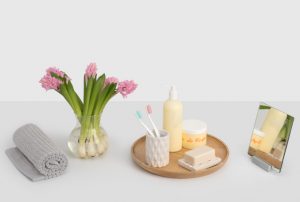
The way you brush is equally important — in fact, doing a poor job of brushing your teeth is almost as bad as not brushing at all. Take your time, moving the toothbrush in gentle, circular motions to remove plaque. Unremoved plaque can harden, leading to calculus buildup and gingivitis (early gum disease). I suggest to use electric brush. It is 30 % more effective-clinical studies say. The procedure has to take at least 2 minutes with the effective technique.
3. Don’t neglect your tongue, gums and lips
Plaque can also build up on your soft tissue like gum, tongue and lips. Not only can this lead to bad mouth odor, but it can lead to other oral health problems. Gently brush your soft tissue every time you brush your teeth. The more you clean them the longer your mouth is clean.
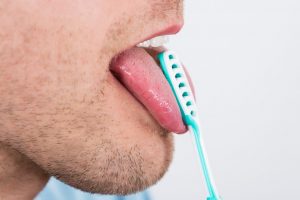
4. Toothpaste with or without fluoride?
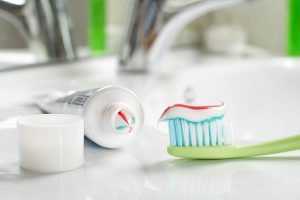
When it comes to toothpaste, there are more important elements to look for than whitening power and flavors. No matter which version you choose, make sure it contains fluoride.
While fluoride has come under scrutiny by those worried about how it impacts other areas of health, this substance remains a mainstay in oral health. This is because fluoride is a leading defense against tooth decay. It works by fighting germs that can lead to decay, as well as providing a protective barrier for your teeth.
5. Cleaning the inter dental areas are as important as brushing
Many who brush regularly neglect to floss or use interdental brushes. It’s really a way to stimulate the gums, reduce plaque, and help lower inflammation in the area.Flossing once a day is usually enough to reap these benefits. Instead of floss, you can use special brushes or water irrigation systems.
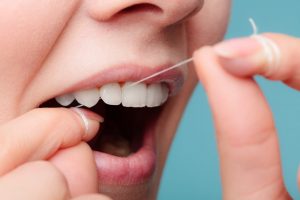
6. Don’t let flossing difficulties stop you
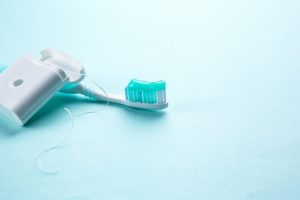
Flossing can be difficult, especially for young children and older adults with arthritis. Rather than give up, look for tools that can help you floss your teeth. Ready-to-use dental flossers from the drugstore can make a difference.
7. Consider mouthwash
Advertisements make mouthwash seem necessary for good oral health, but many people skip them because they don’t know how they work. Mouthwash helps in three ways: It reduces the amount of acid in the mouth, cleans hard-to-brush areas in and around the gums, and re-mineralizes the teeth. Mouthwashes are useful as an adjunct tool to help bring things into balance. I think in children and older people, where the ability to brush and floss may not be ideal, a mouthwash is particularly helpful.
Ask your dentist for specific mouthwash recommendations. Certain brands are best for children, and those with sensitive teeth. Prescription mouthwash is also available.
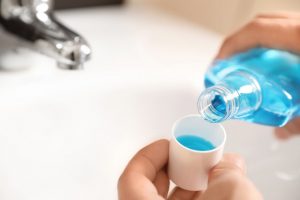
8. Drink more water

Water continues to be the best beverage for your overall health — including oral health. Also, as a rule of thumb, Schwartz recommends drinking water after every meal. This can help wash out some of the negative effects of sticky and acidic foods and beverages in between brushes.
9. Eat crunchy fruits and vegetables
Ready-to-eat foods are convenient, but perhaps not so much when it comes to your teeth. Eating fresh, crunchy produce not only contains more healthy fiber, but it’s also the best choice for your teeth. “I tell parents to get their kids on harder-to-eat and chew foods at a younger age,” says Schwartz. “So try to avoid the overly mushy processed stuff, stop cutting things into tiny pieces, and get those jaws working!”

10. Limit sugary and acidic foods

Ultimately, sugar converts into acid in the mouth, which can then erode the enamel of your teeth. These acids are what lead to cavities. Acidic fruits, teas, and coffee can also wear down tooth enamel. While you don’t necessarily have to avoid such foods altogether, it doesn’t hurt to be mindful.
If you have any questions don't hesitate to contact us!
Look forward to see you at Evergreen Dental 🙂
